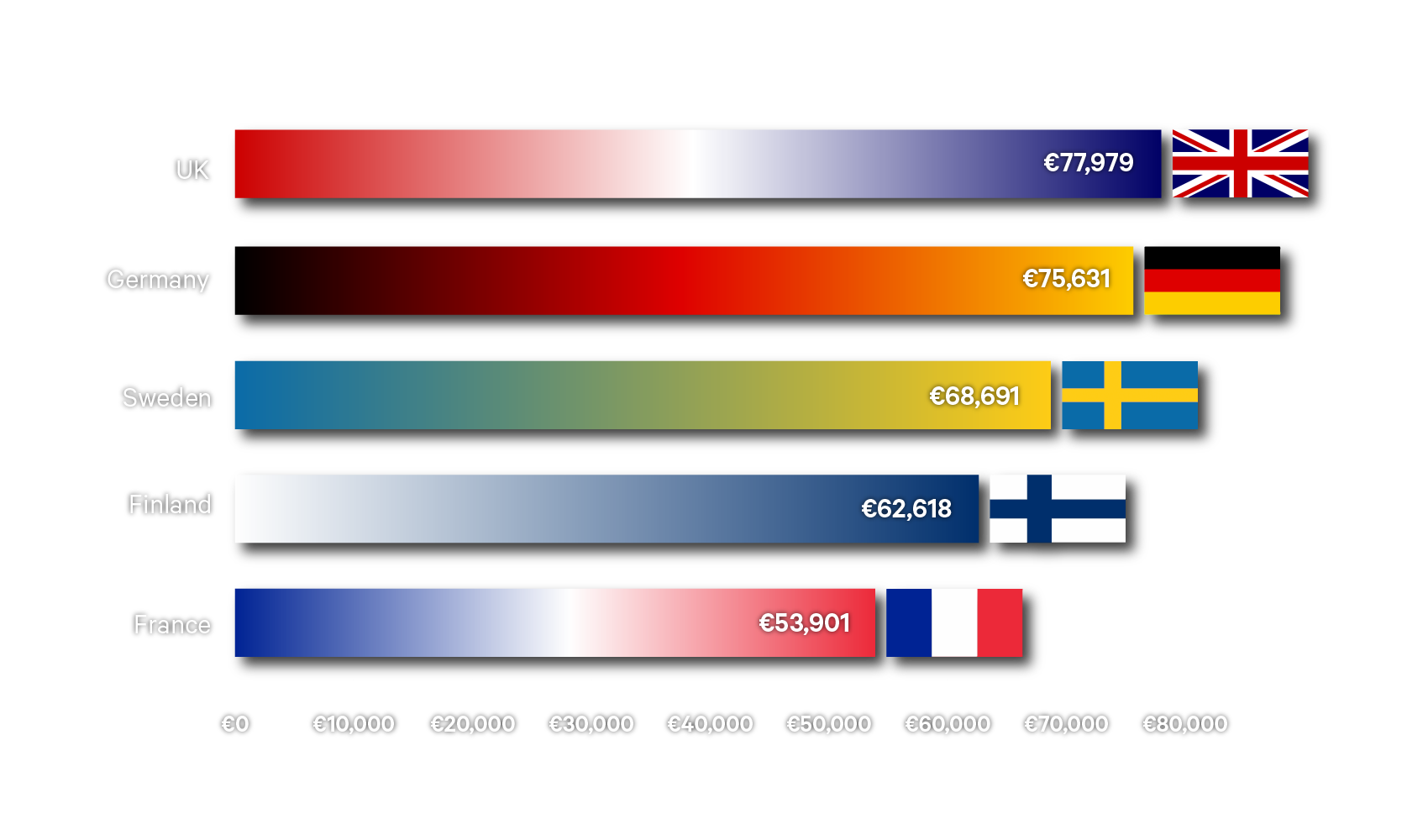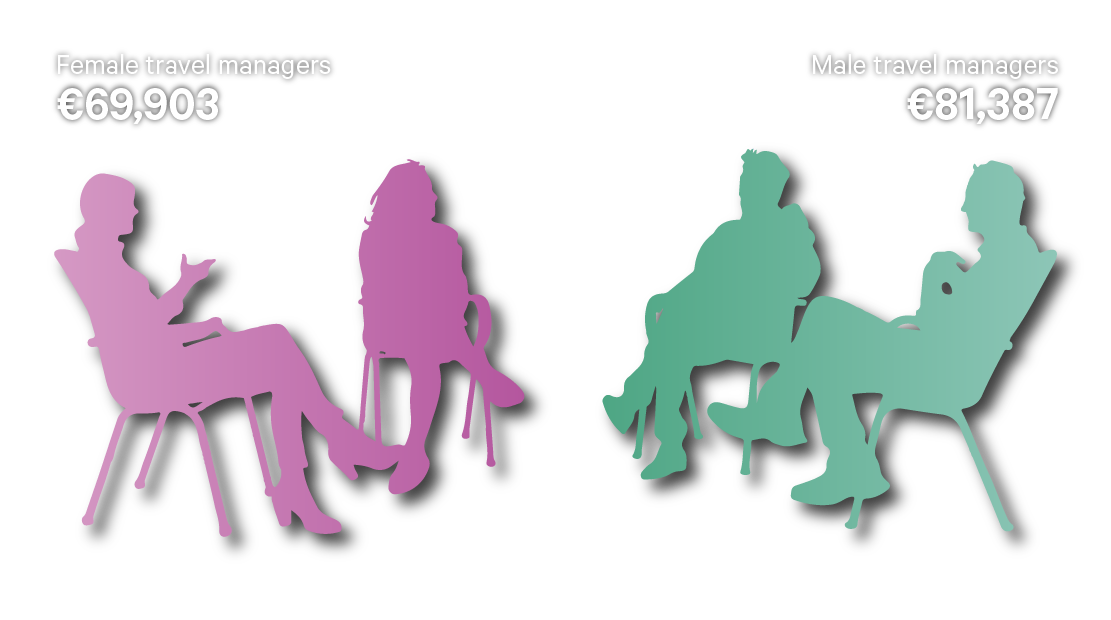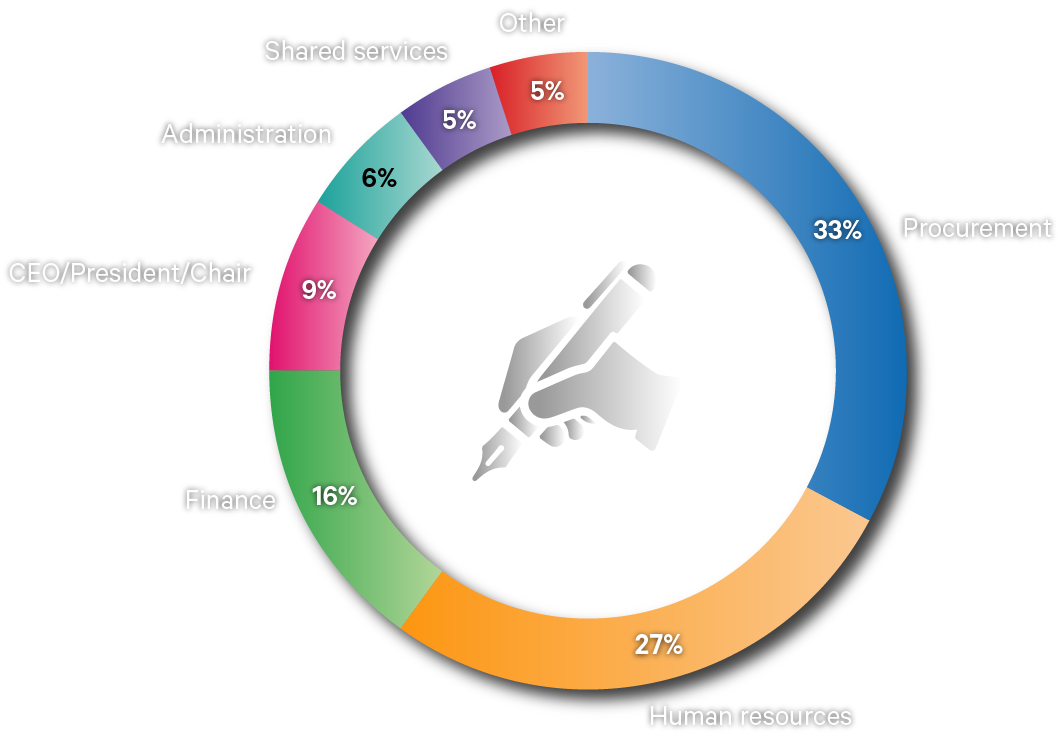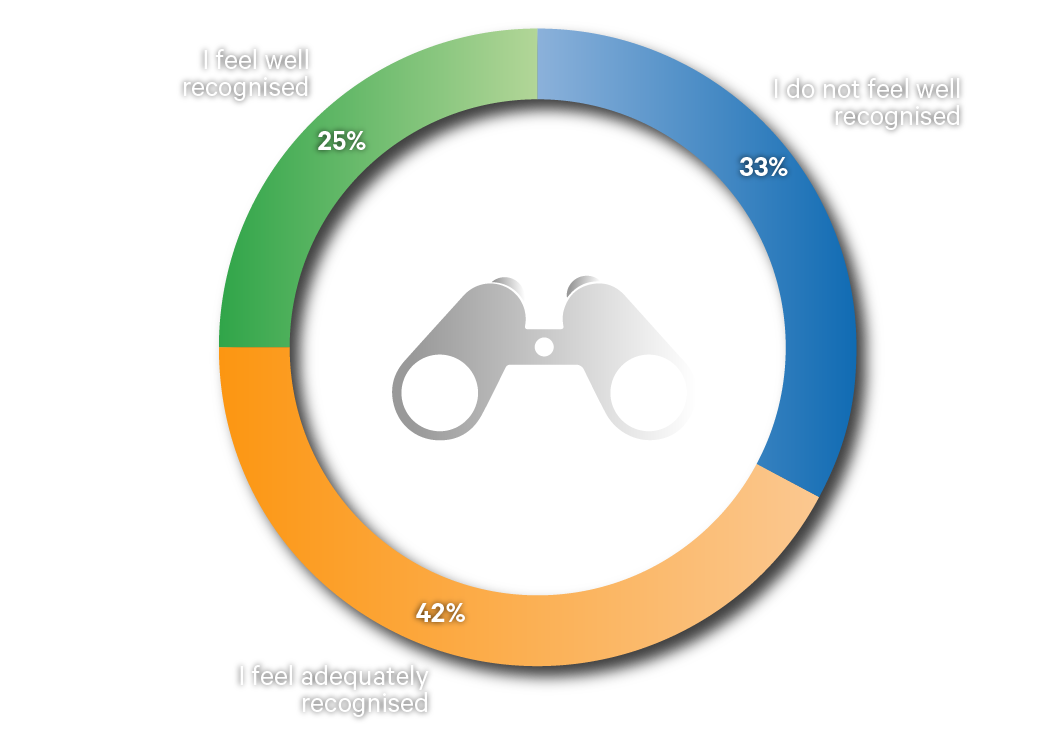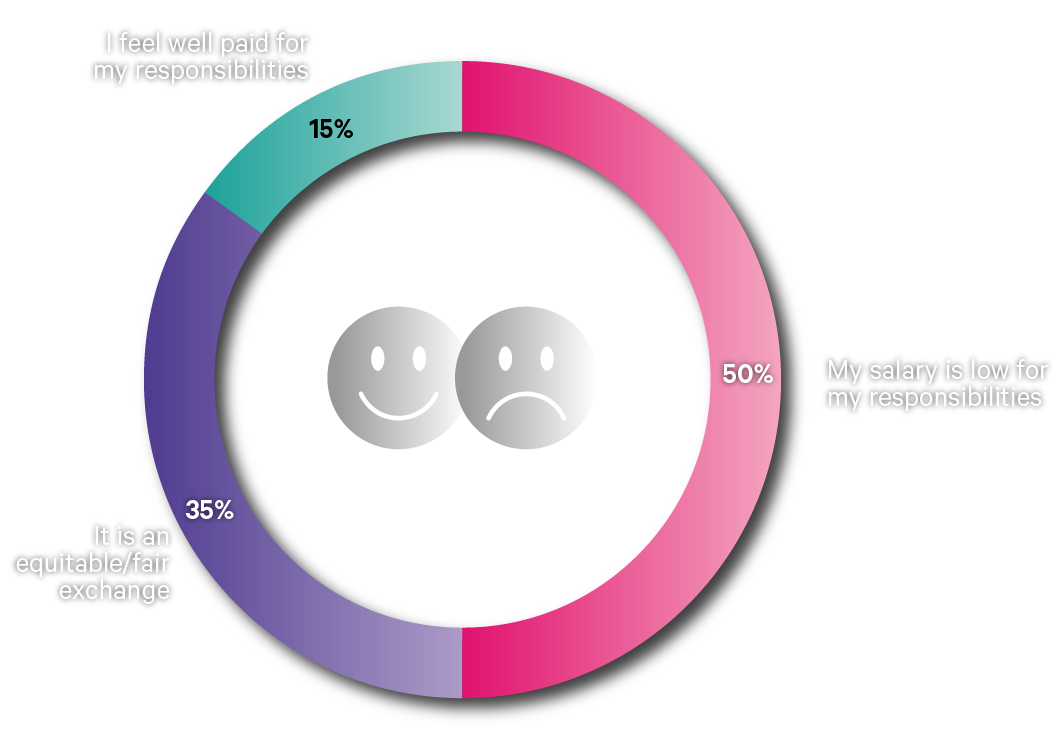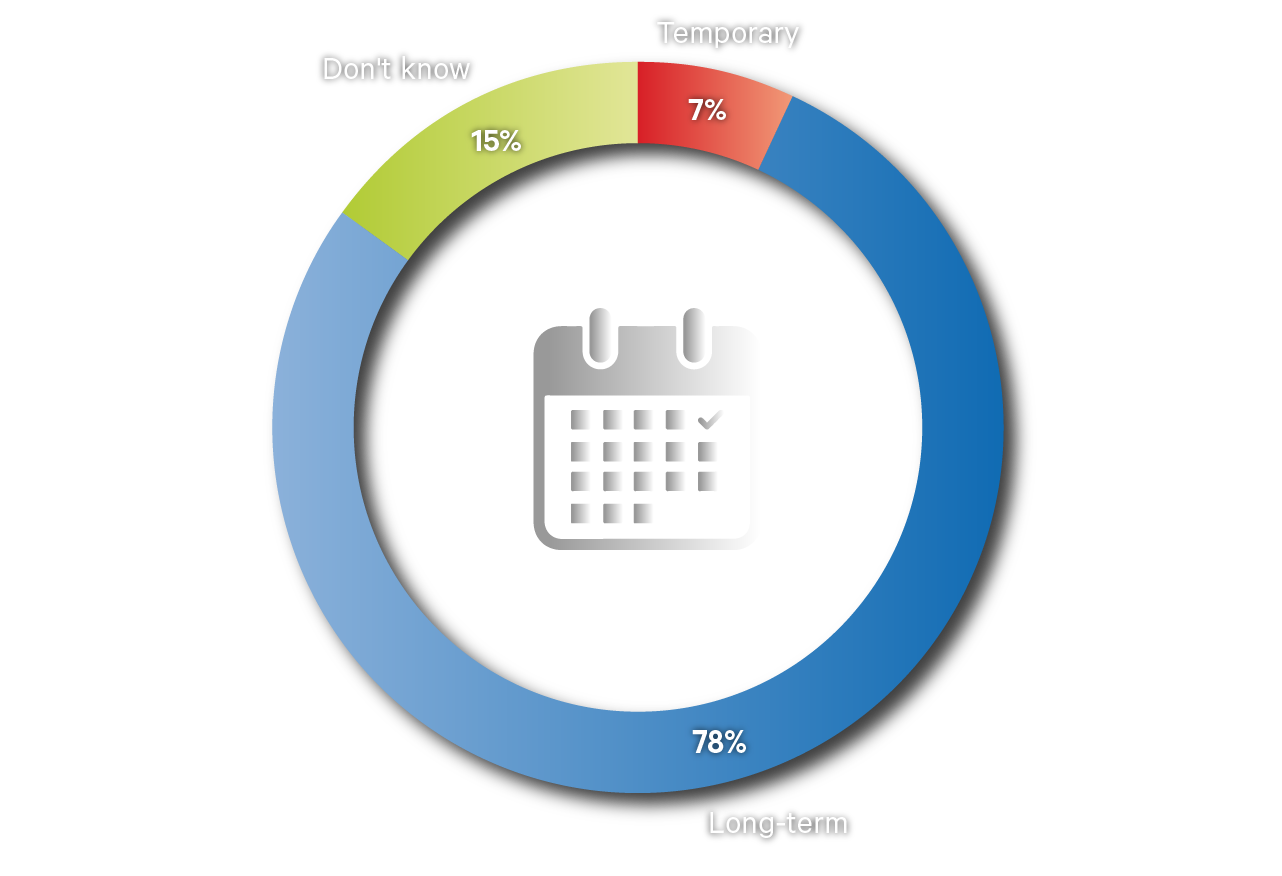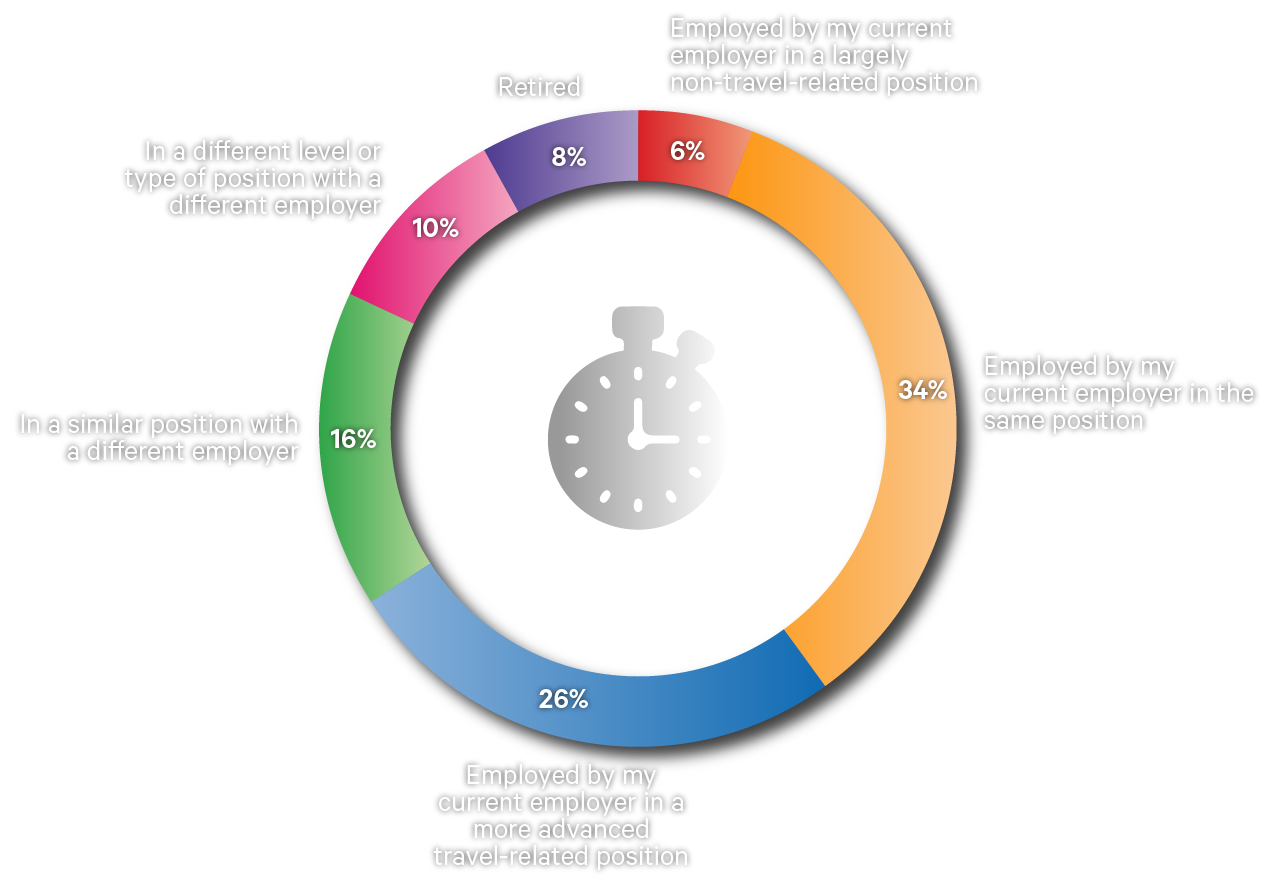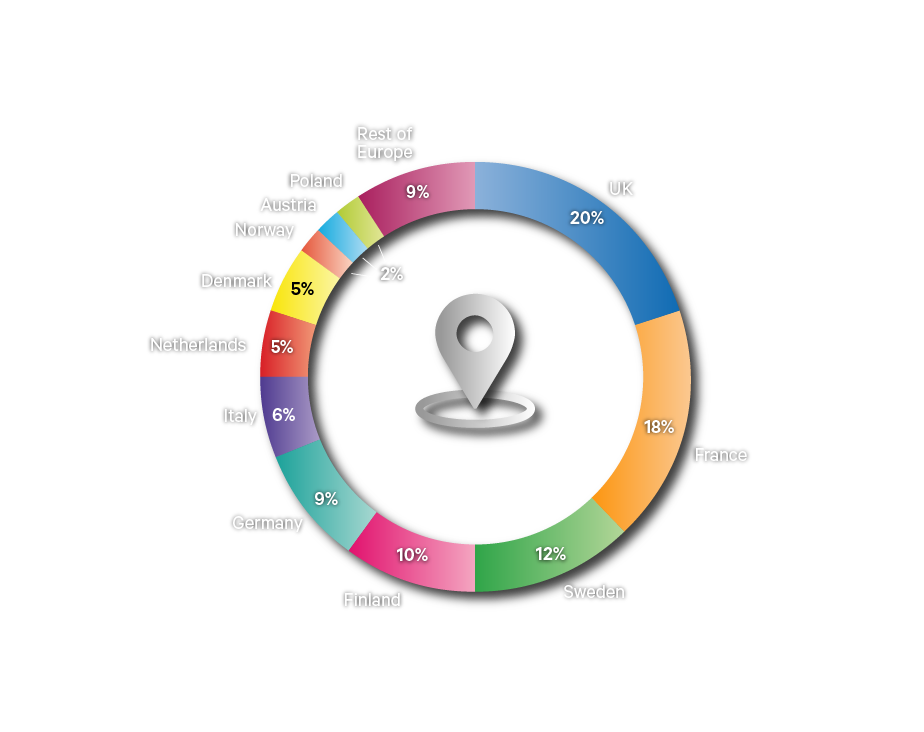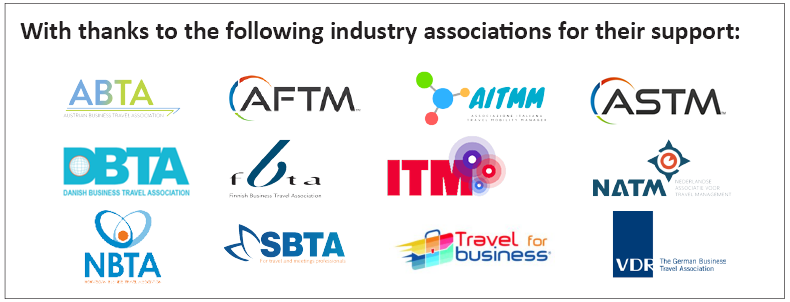The 2024 Travel Manager Salary & Job Satisfaction survey
BTN Europe’s second annual survey sheds light on travel managers' growing responsibilities and the rewards, recognition and challenges that come with the job

The world of corporate travel is evolving rapidly, and so too is the role of the travel manager. BTN Europe’s 2024 Travel Manager Salary & Job Satisfaction Survey delves into the realities faced by these professionals, from expanding responsibilities and the pressures of their role, to the rewards and frustrations that come with it.
In an era of technological transformation and shifting corporate priorities, BTN Europe’s second annual survey paints a vivid picture of the profession, shedding light on the average salary and bonus of European travel managers, the close correlation between travel spend, experience and remuneration, how buyers’ success is assessed, and the perpetual gender pay gap, as well as revealing some of the biggest challenges travel managers face today.
THE HEADLINE NUMBERS
The average salary of European travel managers is up 3% year-on-year but half of buyers say their salary is low for their responsibilities and one-third do not feel well recognised within their organisation. The gender pay gap has narrowed, slightly, but is still more than 16%.
Read on to explore the survey findings in detail…

€76,124
(+3.05%)
The average annual salary for European travel managers in 2024, excluding bonuses, is €76,124 – an increase of 3.05% compared to 2023 when BTN Europe first conducted this survey. More than three-quarters of respondents were based in one of seven countries: the UK, France, Sweden, Finland, Germany, Italy and the Netherlands.

BTN Europe's second Travel Manager Salary & Job Satisfaction survey, like the first, secured good response rates in the UK, Germany and Sweden, with Finland and France displacing the Netherlands and Italy in the top five markets with the most participants. Of these, the UK (€77,979, +0.2% year-on-year) and Germany (€75,631, +0.67% year-on-year) once again posted the highest average salaries but only marginal growth compared to 2023. In contrast, the average salary in Sweden has risen 7.26% to €68,691.
EUROPEAN TRAVEL MANAGERS' AVERAGE SALARY BY COUNTRY
(Calculated only for the five countries with the most survey respondents)

11.7%
The average annual bonus available to European travel managers who have such an incentive is 11.7% of their base salary. However, only 49% of survey respondents have a bonus incorporated in their renumeration package. The highest average bonus was recorded in the UK, at 16.2% of respondents' base salary.
EUROPEAN TRAVEL MANAGERS' AVERAGE BONUS BY COUNTRY
(Calculated as a percentage of base salary and only for the five countries with the most survey respondents)

PAY RISES
Nearly three-quarters of survey respondents (73%) noted their annual salary was higher in 2024 than in 2023, an increase from the 65% of respondents who reported a pay rise in last year's survey. Nearly one in four European travel managers (23%) said their pay had not changed, while 7% reported their pay had decreased in the last year.
EUROPEAN TRAVEL MANAGERS' SALARY MOVEMENT

MORE TRAVEL SPEND EQUALS MORE PAY
The second edition of BTN Europe's Travel Manager Salary & Job Satisfaction survey reaffirmed a common assumption: travel managers overseeing larger programmes tend to earn higher salaries. The survey revealed clear pay bands when comparing annual salaries with company travel spend. On average, managers handling €1 million to €9.9 million in annual spend earned approximately €61,000, rising to €72,000 on average for those managing €10 million to €49.9 million, and reaching around €90,000 for those responsible for more than €50 million in annual travel spend.



AVERAGE EUROPEAN TRAVEL MANAGER SALARY BY SIZE OF TRAVEL PROGRAMME
(Based on respondents' annual business travel spend)
EXPERIENCE IS A DIFFERENTIATOR
Similarly, the survey found a clear link between travel management experience and salary, with a significant increase for those with over 20 years in the industry. Travel managers with up to nine years of experience earned on average around €64,000, which rose modestly to €68,429 for those with 10 to 20 years' experience. However, salaries climbed sharply to €85,218 on average for managers with 21 to 30 years of experience and further to €92,139 for those with more than 30 years in the field.



AVERAGE EUROPEAN TRAVEL MANAGER SALARY BY YEARS OF EXPERIENCE
THE GENDER PAY GAP
BTN Europe's second annual survey once again highlighted a significant pay gap between female and male travel managers across Europe. Women, who made up more than two-thirds of total respondents, earned on average €69,903 (+4.19% year-on-year), while men earned on average €81,387 (+3.28% year-on-year) – a 16.4% difference, slightly narrower than the 17.4% gap reported in 2023.
As in the previous year, the proportion of male travel managers increased with the size of the travel programme. Men accounted for just 9% of those managing programmes with annual travel spend of up to €1 million. This share rose to 15% for programmes of €1 million to €2.9 million, 16% for €3 million to €9.9 million, and approximately one-third of those overseeing €10 million to €99.9 million in annual business travel spend. In the highest spend category, exceeding €100 million, men represented 41% of respondents compared to 59% for women. By contrast, in the overall survey sample, men accounted for 26% and women 67%, while 7% chose not to disclose their gender.
AVERAGE EUROPEAN TRAVEL MANAGER SALARY BY GENDER

CHANGING TIMES
The role of the travel manager continues to evolve but several responsibilities remain central to their role, according to the survey, with the selection and/or recommendation of travel suppliers named by 89% (+6% year-on-year) of respondents as one of their responsibilities and once again topping the list. More than four out of five travel managers (83%, +9% year-on-year) are resposible for setting corporate travel policies, while the selection or recommendation of technology and tools to help manage travel processes was the third most common responsibility (79%, +3% year-on-year). Consistent with last year's inaugural survey, only around one-third of European travel managers have involvement with negotiating rates for meetings (36%) or selecting event facilities and destinations (30%).



THE RESPONSIBILITIES OF EUROPEAN TRAVEL MANAGERS
(Respondents could select multiple answers)
HEIGHTENED FOCUS
In 2024, corporate travel technology emerged as the top area of increased focus for travel managers, with 54% of respondents dedicating more time and effort to it compared to previous years. Close behind, 53% reported a greater emphasis on travel data and analysis. Business travel sustainability, which led this list in 2023, was highlighted by 47% of buyers as an area receiving more attention this year. Virtual conferencing technology, meanwhile, was the area most commonly identified as receiving less focus among European travel managers than in the past.



THE CHANGING FOCUS OF EUROPEAN TRAVEL MANAGERS
WHO'S THE BOSS?
The reporting structure for European travel managers has shifted notably since 2023. While procurement remains the most common reporting line at 33% (-6% year-on-year), the gap to human resources (27%, +9% year-on-year) has narrowed significantly. In last year's survey, more than twice as many travel managers reported to procurement (39%) compared to HR (18%). Meanwhile, the proportion of travel managers reporting directly to the CEO, president or chair remained steady at 9%.
WHERE EUROPEAN TRAVEL MANAGERS REPORT WITHIN THEIR COMPANY

MEASURING UP
Nearly half of European travel managers (48%) are evaluated primarily on the savings or cost avoidance they deliver, making it by far the most common performance metric. Traveller satisfaction follows as the second most frequent criterion at 37%, closely followed by the travel department's strategic contribution to the company at 36%. Only 16% of travel managers are assessed based on their travel programme's progress toward ESG goals.



THE METRICS BY WHICH EUROPEAN TRAVEL MANAGERS ARE MEASURED
(Respondents could select multiple answers)
RECOGNITION RIGHTS
One-third (33%) of European travel managers do not feel they get the recognition they deserve within their company, according to this year's survey – an increase of 4% compared to last year. The proportion of respondents who feel adequately recognised fell a single percentage point to 42%, while 25% (-3% year-on-year) said they feel well recognised within their company.
HOW EUROPEAN TRAVEL MANAGERS FEEL ABOUT RECOGNITION WITHIN THEIR COMPANY

SATISFACTION STATUS
Half of European travel managers (50%) feel their salary is insufficient for their responsibilities, marking a notable 7% increase compared to last year. Meanwhile, just 35% believe they are fairly compensated, a drop of 9% year-on-year, and only 15% consider themselves well-paid, down from 25% in last year's survey. The results reflect a growing sense of dissatisfaction among travel managers.
EUROPEAN TRAVEL MANAGERS' SALARY SATISFACTION

JOB FOCUS
Although more respondents' expressed dissatisfaction with their salary this year than last, overall commitment to their roles was almost unchanged: 78% say their focus on their job is long-term (+1% year-on-year) while just 7% (-2% year-on-year) say it is more temporary. A further 15% say they are unsure (+1% year-on-year).
EUROPEAN TRAVEL MANAGERS' FOCUS ON THEIR JOB

WHAT'S NEXT?
When asked to consider where they may be working in two years' time, just over one-third (34%) of respondents said they expect to be with the same employer in the same role, while 26% anticipate a promotion within that timeframe. More than a quarter expect to have moved to another employer and 8% expect to have retired.
WHERE EUROPEAN TRAVEL MANAGERS SEE THEMSELVES IN TWO YEARS' TIME


CHALLENGING TIMES
The 2024 Travel Manager Salary & Job Satisfaction Survey included two open-ended questions, inviting respondents to share their biggest challenges of 2024 and the most significant industry developments likely to impact them in the year ahead. The responses revealed several recurring themes.
While no single challenge dominated, many respondents highlighted the addition of new responsibilities or the expansion of their roles. These additional responsibilities included the likes of managing fleet operations, data reporting, corporate card programmes, travel risk management, accessible travel, sustainability initiatives, CSRD reporting and expense auditing.
Sustainability also featured prominently among buyers' most significant challenges in 2024, with some respondents struggling to influence traveller behaviour or align company ESG goals with travel programmes. “Trying to reduce our carbon footprint when travel volumes are increasing is undoubtedly our biggest challenge,” noted one respondent.
Technology was another key area of concern, with several respondents experiencing issues when implementing online booking tools for the first time and others grappling with OBT transitions or adoption challenges.
Few travel managers voiced dissatisfaction with their travel management companies (though one bluntly stated, “many TMCs suck”), but others have found the RFP process or switching TMCs to be particularly challenging this year.
Structural changes, promotions, or new roles also brought difficulties for many travel managers. “Moving from procurement into finance has completely changed the focus of my role from a service and traveller-led programme to a cost-driven and savings-focused one,” wrote one respondent. “Senior leadership restructuring within the company has changed the dynamics and perception of travel within the business,” said another. “They are too busy to hear our needs and respond to our recommendations.”
NDC (New Distribution Capability) was frequently mentioned, with complaints about TMC readiness, fare availability, and traveller confusion over cheaper, non-preferred channels among the most prominent complaints. “It's becoming more and more difficult to manage the impact of NDC, to justify that I am performing well in my role, and that the programme works effectively,” reported one travel manager.
Looking ahead, NDC and artificial intelligence emerged as the most common anticipated challenges, alongside rising travel costs, the need to reduce emissions, and technology limitations. Broader concerns included potential industry mergers – with several respondents worried about the impact of American Express Global Business Travel and CWT’s potential merger – and the possible impact of global developments such as the Donald Trump presidency, ongoing conflict, and economic uncertainty.
SURVEY METHODOLOGY
Business Travel News Europe’s 2024 Travel Manager Salary & Job Satisfaction report is based on the responses of 256 individuals who completed a survey fielded by BTN Europe, to European travel managers only, between 23 October and 25 November 2024. Not all participants completed the survey in full and responses were vetted to ensure validity.
Respondents, who completed the survey anonymously, were able to enter salary details in the currency of their choice, thus conversions were necessary, and these were made in the week commencing 25 November 2024. Unlike last year’s inaugural survey, BTN Europe’s research was not supplemented by data from other organisations.
More than three-quarters of respondents were based in one of seven countries: the UK, France, Sweden, Finland, Germany, Italy and the Netherlands, and there was little representation from Eastern Europe. Respondents' travel progammes varied in size (in terms of annual spend) with no one spend bracket returning notably more responses, while travel buyers' years of experience also showed a relatively even spread. More than two-thirds of respondents were female.
See below for more information on the survey respondents...
RESPONDENTS' LOCATION
SIZE OF RESPONDENTS' TRAVEL PROGAMME (ANNUAL SPEND)
RESPONDENTS' GENDER
RESPONDENTS' TRAVEL MANAGEMENT EXPERIENCE
WITH THANKS TO...
BTN Europe would like to thank the following organisations for their promotion of and support for the 2024 Travel Manager Salary & Job Satisfaction survey: Austrian Business Travel Association (ABTA), French Association of Travel Management (AFTM), Italian Association of Travel and Mobility Managers (AITMM), Association of Swiss Travel Management (ASTM), Danish Business Travel Association (DBTA), Finnish Business Travel Association, the UK's Institute of Travel Management (ITM), Netherlands Association for Travel Management (NATM), Norwegian Business Travel Association (NBTA), Swedish Business Travel Association (SBTA), Travel for Business, and German business travel association Verband Deutsches Reisemanagement (VDR).


